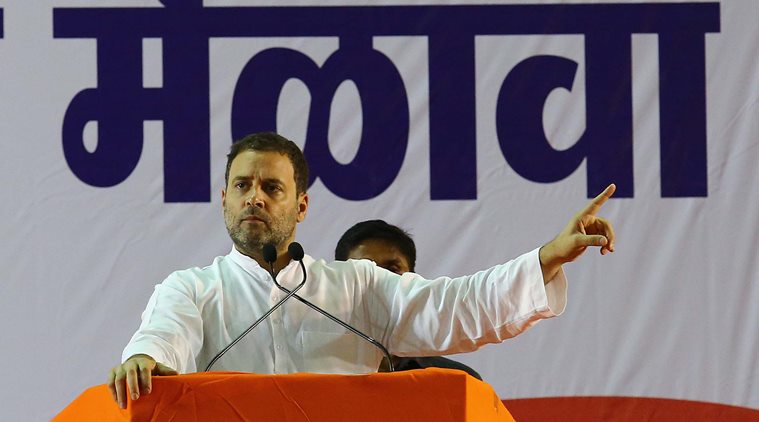 Congress president Rahul Gandhi (Express photo by Prashant Nadkar/File)
Congress president Rahul Gandhi (Express photo by Prashant Nadkar/File)
Congress president Rahul Gandhi on Monday wrote to Prime Minister Narendra Modi asking him to “demonstrate his commitment to the cause of women”, and ensure the passage of the Women’s Reservation Bill in the Monsoon session of Parliament, starting July 18.
In his letter, Rahul reminded Modi that the Women’s Reservation Bill was passed by Rajya Sabha in March 2010 with the BJP’s support, but has been pending in Lok Sabha since.
“Since then, while the Congress party has been unwavering in its commitment to the Bill, the BJP appears to have had second thoughts, even though this was one of its key promises in its 2014 manifesto,” he said, while offering his party’s unconditional support for the passage of the Bill.
The letter comes just two days after the Prime Minister criticised the Congress president over the party’s stand on triple talaq and asked if it was interested only in the welfare of Muslim men and not women.
At a public meeting in Uttar Pradesh’s Azamgarh on July 14, Modi said: “…please tell us whether the Congress is only for Muslim men? Or does it have space for Muslim women too…”
Asking the Prime Minister to “rise above party politics and send India a message that we believe the time for change has come”, Rahul said that women “at present are abysmally represented” in state legislatures and Parliament.
“Mr Prime Minister, in many of your public rallies you have spoken about your passion for empowering women and involving them more meaningfully in public life. What better way to demonstrate your commitment to the cause of women, than by offering your unconditional support to the passage of the Women’s Reservation Bill?” he said in the letter, while adding that any further delay in passage of the Bill would make it impossible to implement it before the next Lok Sabha elections.
“For the sceptics in your party (the BJP), who oppose the passage of this transformational legislation, I would appreciate you pointing out to them that our nation’s experience with governance at the Panchayat and Municipal levels, has clearly shown that women in leadership positions are more likely, than their male counterparts, to take decisions that further the cause of an inclusive and just society, which is why this Bill has the potential to transform governance in India,” he wrote.